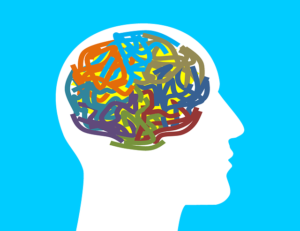 When you have depression or anxiety, exercise often seems like the last thing you want to do. But once you get motivated, exercise can make a big difference. Read more ›
When you have depression or anxiety, exercise often seems like the last thing you want to do. But once you get motivated, exercise can make a big difference. Read more ›
Parent Resource library Search Results
Search results for: mental health
Depression and Anxiety: Exercise Eases Symptoms
Anxiety Screening Recommended for All Females Ages 13 and Up
 Young women ages 13 and up should be screened for anxiety at routine visits, according to a new Women’s Preventive Services Initiative (WPSI) recommendation. Read more ›
Young women ages 13 and up should be screened for anxiety at routine visits, according to a new Women’s Preventive Services Initiative (WPSI) recommendation. Read more ›
High School Is Not the Time to Let Up on SEL
 In elementary school, it’s common to have social and emotional lessons built into the curriculum, and the research shows that they have a strong, positive impact on student outcomes and school climate. But a 2019 survey of 15,000 K–12 teachers and 3,500 principals confirms what many probably suspect—that by the time kids reach high school, standalone SEL lessons are rare. Read more ›
In elementary school, it’s common to have social and emotional lessons built into the curriculum, and the research shows that they have a strong, positive impact on student outcomes and school climate. But a 2019 survey of 15,000 K–12 teachers and 3,500 principals confirms what many probably suspect—that by the time kids reach high school, standalone SEL lessons are rare. Read more ›
The 988 Suicide & Crisis Lifeline Is Now Active Across the US [web resource]
 988 has been designated as the new three-digit dialing code that will route callers to the National Suicide Prevention Lifeline (now known as the 988 Suicide & Crisis Lifeline), and is now active across the United States. Read more ›
988 has been designated as the new three-digit dialing code that will route callers to the National Suicide Prevention Lifeline (now known as the 988 Suicide & Crisis Lifeline), and is now active across the United States. Read more ›
Comorbid Autism Spectrum Disorder and OCD: Challenges in Diagnosis and Treatment
 Interventions shown to be highly effective in treating symptoms of autism are already limited, but the options shrink even further in the presence of anxiety comorbidities, particularly obsessive compulsive disorder (OCD).
Interventions shown to be highly effective in treating symptoms of autism are already limited, but the options shrink even further in the presence of anxiety comorbidities, particularly obsessive compulsive disorder (OCD).
Research has been focused not only on identifying a specific anxiety disorder in children and adolescents with autism, but also in distinguishing between the symptoms of each disorder and how to treat each disorder. Read more ›
DBT: Acceptance and Change

 Studies indicate that Dialectical Behavior Therapy (DBT) is “the best tool we have” for self-harming and suicidal adolescents. So what is it and why is it so effective? DBT teaches important social-emotional and resilience skills for life enhancement. Read more ›
Studies indicate that Dialectical Behavior Therapy (DBT) is “the best tool we have” for self-harming and suicidal adolescents. So what is it and why is it so effective? DBT teaches important social-emotional and resilience skills for life enhancement. Read more ›
How To Help A Kid Survive Early Puberty
 From surging hormones and acne to body hair and body odor, puberty can be a rocky transition for any kid. But girls and boys who start physically developing sooner than their peers face particular social and emotional challenges, researchers find. Read more ›
From surging hormones and acne to body hair and body odor, puberty can be a rocky transition for any kid. But girls and boys who start physically developing sooner than their peers face particular social and emotional challenges, researchers find. Read more ›
Learning Disabilities Association of America [web resource]
 Since 1963, Learning Disabilities Association of America (LDA) has provided information on learning disabilities, practical solutions, and a network of resources to support individuals with learning disabilities, their parents, teachers and other professionals. Read more ›
Since 1963, Learning Disabilities Association of America (LDA) has provided information on learning disabilities, practical solutions, and a network of resources to support individuals with learning disabilities, their parents, teachers and other professionals. Read more ›
A Real-Life Perspective: What It’s Like Parenting Children with Mental Illness
 In the culture of special needs parenting, certain types of disabilities push parents toward the edges. Those of us with mentally ill kids inch away from bright lights and parent support groups. Words stick in our mouths. We clear our throats, nodding as other parents discuss hard things. If their children cannot read, cannot walk, cannot hear — then at least they have not thrown an iPad through the screen of the television. Read more ›
In the culture of special needs parenting, certain types of disabilities push parents toward the edges. Those of us with mentally ill kids inch away from bright lights and parent support groups. Words stick in our mouths. We clear our throats, nodding as other parents discuss hard things. If their children cannot read, cannot walk, cannot hear — then at least they have not thrown an iPad through the screen of the television. Read more ›


